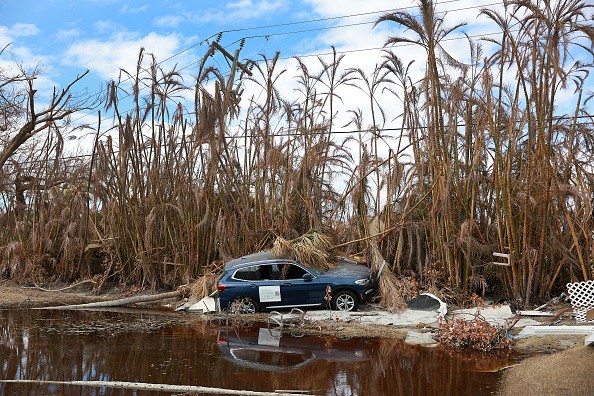Rare flesh-eating bacteria reportedly increased in Florida after Hurricane Ian's flooding, advising residents to be careful and watch out for the symptoms.
Residents in Florida began to return to their homes after the disastrous impact of Hurricane Ian. The house damage caused residents to seek temporary shelters and immediately salvage what was left. At the same time, animal facilities have been helping stranded and abandoned dogs.
Volunteers and the Florida states helped residents to recover. The state provided loans for small businesses to reopen. Also, the state has been working hard to speed up the recovery efforts.
In the recent Tweet, Governor Ron DeSantis said they opened the Sanibel Causeway. Meanwhile, the governor also noted that school districts closed due to the Hurricane would be reopened by October 18, 2022.
A rare case flesh-eating bacteria

The impact of Hurricane Ian caused widespread flooding in Florida. Floodwaters, especially when slow to recede, could cause health problems.
According to a CNN Health report, harmful flesh-eating bacteria increased in Florida after the Hurricane. Based on the article, there were 65 cases of Vibrio vulnificus infection, with 11 deaths (As of Friday).
The Florida Health Department said that Vibrio vulnificus, which affects residents in Florida, lives in the warm seawater, noting that the infection was rare. The flooding in Florida, it poses risks of infection.
The Health Department advised residents not to enter the water, especially if they have wounds or cuts. The information added that residents should wear foot protection, particularly people who are immunocompromised and weakened immune systems. Exposed wounds can cause infection and serious concerns for those with weak immune systems.
Moreover, the department noted that immediate attention is needed, such as antibiotics or medical treatment, to prevent the harmful effects of the infection. The bacteria could penetrate the bloodstream, which could be lethal, causing symptoms such as chills, fevers, and decreased blood pressure.
According to the CNN, infections occur in parts of Lee County, where Ian made landfall. Sanibel Island and Fort Mayers were also affected.
Spokesperson Tammy Soliz told CNN that DOH-Lee urged the public for precautions against the vibrio vulnificus' infections.
On the other hand, Florida Department of Health spokesperson Jae Williams explained that they noted that the cases were declining.
Reminders from the Health Department
As residents began to clean and live after the worst of Hurricane Ian, reports advised that they should be extra careful, especially those with weakened immune systems or open wounds or cuts. The effect of the infection could be dangerous.
- Wear foot protection if you have an open wound. Avoid floodwaters as possible or water exposed to flooding.
- The Florida Health Department said residents should thoroughly cook oysters, clams, or shellfish. Avoid eating raw shellfish.
- If you feel the symptoms above, immediately consult your nearby doctor or clinic for the antibiotic. Immunocompromised people should stay out of floodwaters or seek immediate medical attention if exposed or infected.
- Stay updated with announcements from the Florida Health Department. Visit their website here.
Related Article : Animal Rescue Group in Florida Helps Dogs Affected by Hurricane
For more similar stories, don't forget to follow Nature World News.
© 2025 NatureWorldNews.com All rights reserved. Do not reproduce without permission.





